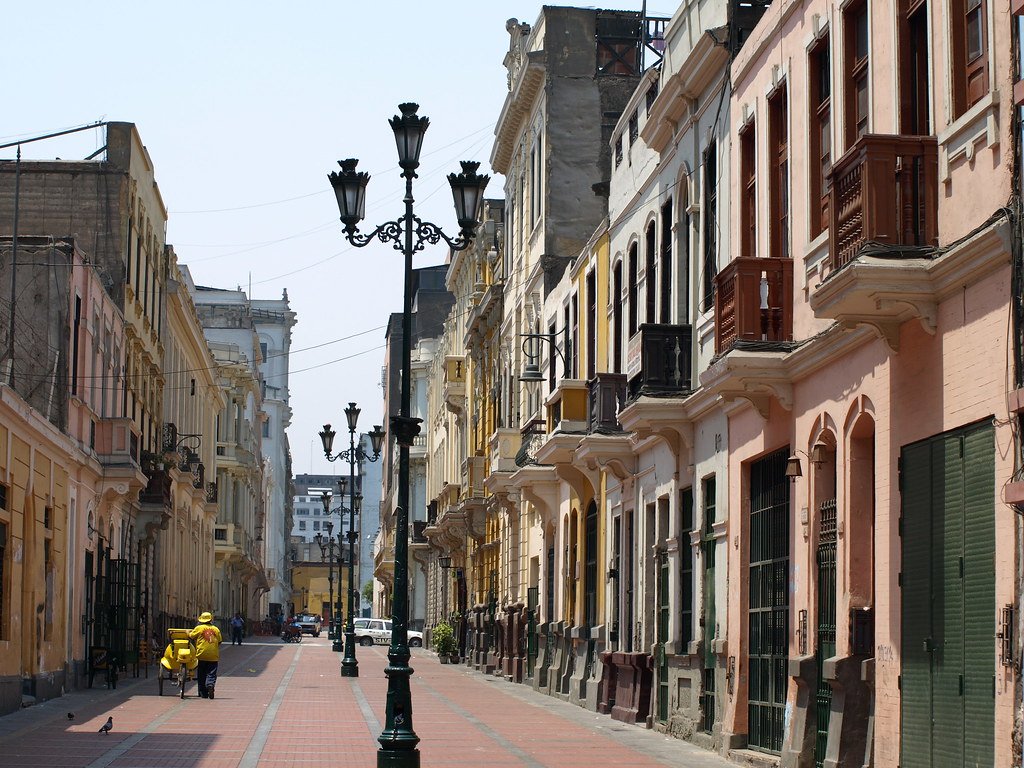Intercultural Ethics: A Tool for Travelers
Whenever we travel, be it down the street or across the world, we are given the opportunity to leave behind the familiar and embrace new experiences. This can be an empowering and transformative process, as we encounter different ways of life and come to understand our own values in a new light. Intercultural ethics can be a powerful tool as we seek to better interact with other cultures, recognizing that different cultures may express the same values in different ways.
One of the most important steps of practicing intercultural ethics is to be aware of and eliminate to the best of one’s ability any stereotypes or prejudices that may arise due to the unfamiliar environment and culture. To put our system of moral values into action as travelers, we must relax a bit and immerse ourselves into the lives of others with a fresh perspective and a desire to learn.
LIMA, PERU - Locals travel along a beautiful street in a historical district of Lima
From a Cultural Value Leadership perspective, everything we experience of another culture will fall into one of the following categories: lifestyles, beliefs, traditions, linguistic diversity, use of technology, intellectual/creative expression and socio-historical changes. It can be helpful to consider these dimensions in order to gain a deeper understanding of the culture. When we relax, take a step back, and learn from another culture through these lenses, we can undergo a life-changing experience from a space of psychological safety.
Let’s remember that humans can express themselves within the study of intercultural behavior in any of four categories: creators, connectors, consumers, and conquerors. The first two are active behaviors and the others passive. The intercultural traveler will be able to actively engage with and learn from a culture, rather than simply consuming it. They will have the ability to identify the role that the people they encounter play in their society and connect with those individuals in a personal way, recognizing common interests and the other person’s needs.
Overall, intercultural traveling can be a powerful and enriching experience, as we learn about ourselves and the world around us. It allows us to see our values reflected in the way of life of others, and to feel a sense of connection and understanding with people from different cultures.
This article was originally written in Spanish by Dr. Veronica V. Herrera and was translated and adapted by Scotty Brown.


